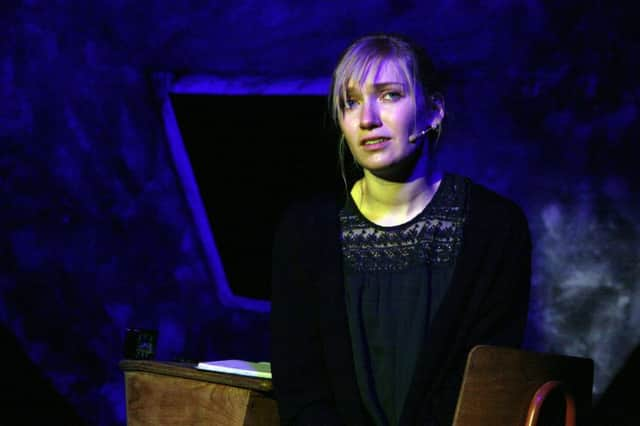Music review: Sound Festival, Aberdeen


Sound Festival
Various venues, Aberdeen
But Sound, the boundary-pushing Aberdeen-based festival of contemporary music, focuses this year on collaboration. Which meant a throng of fine Scottish writers, film-makers, dancers, games designers and more flocking to the festival’s In Cahoots conference to discuss how they work with music and musicians in their respective fields – and more importantly, a host of cross-discipline performances across the festival’s opening weekend.
The first of these was a significant new music/theatre offering from playwright Rebecca Sharp and composer Pippa Murphy. The Wakeful Chamber (JJJJ) seemed at first like an oblique, unsettling exploration of a sleepless woman’s obsessive counting and ordering of objects and facts. It melded Sharp’s text – which shifted, sometimes awkwardly, between the poetic and the prosaic – and Murphy’s moody electronic soundscape to fascinating effect: it was never opera, but more than simply music-accompanied drama, with sound frequently intruding on the action, especially when musician David Rankine stepped out from his nest of instruments to act alongside Kim Allan’s compellingly tormented protagonist.
Advertisement
Hide AdAdvertisement
Hide AdIf the ending felt far more traditional (and rather more mawkish) than the piece’s earlier abstraction had suggested, it was no less emotionally powerful for that, and both performances were strong and beautifully nuanced.
It was music and dance that came together last Friday evening, in the sensual, seductive Sandglass (JJJJ) from Glasgow-based composer Thomas Butler and choreographer Lucy Boyes, with scrunched aluminium blankets gently rippled by handheld electric fans against the backdrop of Butler’s atmospheric score, bringing together the memories of Aberdeen fishermen and kid’s fantasy reimaginings of their city.
Far more rugged and robust was the Red Note Ensemble’s late-evening Noisy Night gig (JJJ) – their 30th, joked artistic director John Harris proudly – assembling a clutch of short new pieces for flute, vibraphone and cello, the strongest of which was US composer Kala Pierson’s brief, beguiling and beautifully crafted Metal Ripples, received just days previously and despatched with sensitive flair by Ruth Morley (alto flute) and Tom Hunter (vibes). You Can’t Get There From Here (JJJJ) was the culmination of a major sound festival project to discover whether multiple composers can collaborate effectively on a single piece of music.
Six Scottish-based composers – Sonia Allori, Colin Broom, John De Simone, Drew Hammond, Francis Macdonald and Oliver Searle – had worked together, refining and reworking fragments of music to arrive at six short multi-composer pieces.
The results, perhaps unsurprisingly, seemed to focus more strongly on craft than on wild invention, but as an examination of the process of musical creation, it was an invaluable event – with strong performances from Ensemble Thing.
Last Saturday evening’s big show – David Lang’s poignant Little Match Girl Passion (JJJJ) from Cryptic and director Josh Armstrong – made for an atmospheric end to the day, touchingly restrained and high on artifice and self-aware Victoriana. But it showed, too, the richness of sound’s eclectic, enterprising programme, made all the richer this year through the festival’s celebration of new music’s crucial ties with the other arts.
• Sound Festival runs until 9 November